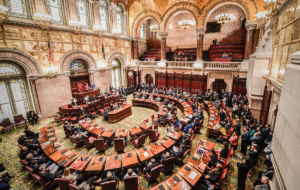Transgender Athletes and Women’s Sports: A Divisive Debate
The recent passage of a bill in the US House of Representatives banning transgender students from women’s sports has ignited a fierce and highly divisive debate across the nation. This legislation, primarily driven by Republican lawmakers, seeks to define “sex” in sports contexts solely based on biological factors assigned at birth, effectively excluding transgender girls and women from competing in teams that align with their gender identity.

Arguments in Favor of the Ban
Proponents of the bill argue that it is crucial to protect the integrity and fairness of women’s sports. They contend that transgender women and girls possess inherent biological advantages, such as increased muscle mass and bone density, due to male puberty, which create an unfair playing field for cisgender female athletes. They argue that allowing transgender women to compete in women’s sports undermines the achievements of cisgender female athletes and diminishes opportunities for their success.
Arguments Against the Ban
Critics of the bill vehemently oppose its discriminatory nature and argue that it is based on harmful stereotypes and misconceptions about transgender individuals. They emphasize that transgender girls and women face significant social and emotional challenges and that excluding them from sports participation can have a detrimental impact on their mental and physical health.
Furthermore, critics point out that many sports governing bodies already have in place rigorous eligibility requirements for transgender athletes, often including hormone therapy and other measures to mitigate any potential competitive advantages. These existing guidelines, they argue, effectively ensure fair competition while upholding the principles of inclusion and non-discrimination.
A Collision of Principles
The debate over this legislation highlights a fundamental conflict between two core principles: the protection of women’s sports and the protection of transgender rights. Proponents of the bill argue that it is crucial to preserve opportunities for cisgender women in sports, while opponents contend that the bill infringes upon the rights and well-being of transgender individuals. This conflict underscores the complexities of navigating inclusivity and fairness in the realm of sports, particularly in an era of evolving social and cultural understandings of gender identity.
The Road Ahead
The passage of this bill in the House of Representatives does not guarantee its enactment into law. It now faces scrutiny in the Senate, where its fate remains uncertain. Regardless of the final outcome, the debate surrounding this legislation underscores the urgent need for a nuanced and inclusive approach to addressing the concerns of all athletes, while upholding the principles of fairness and equal opportunity for all.




















